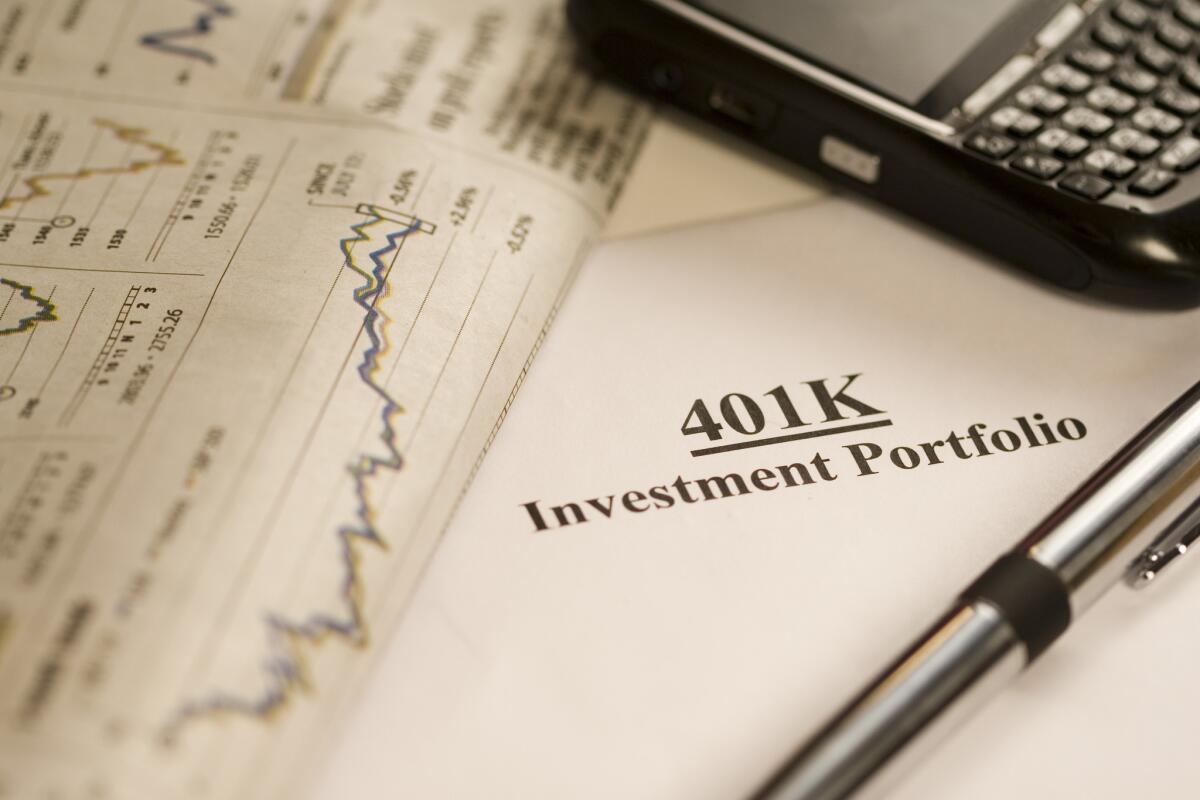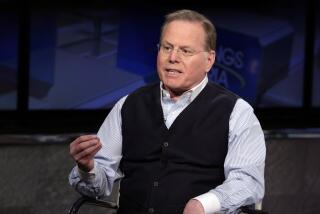The 401(k) match is back, and it’s getting bigger

- Share via
One of the best tools to save for retirement over the last three decades has been the 401(k) and the corporate match —free money! — that came with it. In many places, one of the first casualties of the financial crisis was the company match.
Now it seems, the match is roaring back. Many companies are boosting their matches in employee 401(k) plans, according to a report by Vanguard Group, the investment firm with $4.4 trillion under management.
The results of the study, titled “How America Saves,” were reported in the Wall Street Journal.
Many firms are using the automatic matches as an inducement for people to save more, creating more peace of mind and loyalty among employees.
Company matches in 401(k)s are on track to hit 4.7% of employee salaries this year, up from 3.9% in 2015 and way up compared with 3% in 2009 in the depths of the financial crisis, according to the 107-page report.
“Increasing contributions into your retirement plan, especially when you are younger, is a no-brainer,” said Christopher Poch, an advisor with Morgan Stanley Private Wealth Management. “The more you can save for retirement, and the earlier you start, the better off you will be.”
Many companies reduced their 401(k) matches in recent years as a way to save money when earnings dropped after the financial crisis or because of outside forces such as the digital economy, which has wreaked havoc on business models from media to retail.
But as finances stabilized, some firms are increasing their matches. The motives behind the increase in matches vary, but they mostly break down into two groups.
“One is competitive factors and one is employers with a high degree of paternalism,” said Jean Young, a research analyst at the Vanguard Center for Investor Research. She views paternalism as a sign of a benevolent employer who is nurturing good financial habits of its workers.
Employers use matches as a carrot to woo new employees, especially in the highly competitive technology sector.
“We are seeing a higher proportion of tech industry firms providing a match than the broader all-industry average, particularly within the mid-to-larger-size firms,” said Aimee DeCamillo, head of T. Rowe Price Retirement Plan Services. “In 2016, we saw almost 81% of tech firms offering a match, compared to slightly less than 75% across all industries.”
A generous 401(k) match — or any match — including of up to 6% of a salary is free money. That goes a long way to luring employees and keeping the ones you have.
Microsoft last year boosted its match. Lower-earning employees, those making a (ahem) paltry $80,000 a year, saw their maximum potential match go to $9,000 from $2,400. An employee under 50 who saves the federally allowed limit of $18,000 can now get a Microsoft match of $9,000, boosting their annual tax-sheltered retirement savings to $27,000.
“The principal reason was to enhance competitiveness in order to attract, retain and motivate the best talent available,” said Fred Thiele, Microsoft’s general manager of global benefits.
“We wanted to encourage greater retirement savings at the lower-income tiers of the company,” Thiele said. “The goal is to get early-in-career, lower-income savings. When you add the power of compounding and average weighted investment fees of 0.21%, these people are in a much better position later in life.”
Some companies use it as a way for current employees to beef up their retirement savings and smooth the path toward an exit. The 401(k) matches also boost morale.
“We increased our 401(k) match in honor of our people and their accomplishments,” said Scott Scherr, founder and chief executive of Ultimate Software, a human resources software maker in Weston, Fla.
Scherr has been steadily increasing its 401(k) match as a path to reward its 3,700 employees when the company hits its financial goals.
The company said it matches 40% on every $1 that an employee contributes up to the maximum. Ultimate Software is shooting to reach $1 billion in revenue next year. That kind of match keeps people around longer, which also reduces the expense of replacing them.
“We hope our employees will commit to us and our customers long term,” Scherr said.
The 401(k) match increases come as many employers continue to move away from pensions and other defined-benefit programs. That shift put more responsibility, and risk, on the employees.
The 401(k) has become a cornerstone of the retirement system since Congress passed it into law with the Revenue Act of 1978. The tax-sheltered component allows taxpayers a compelling break on income tax.
Young of Vanguard said “in order for people to have sufficient savings for retirement, they have to get two things right: They have to save enough and they need to save appropriately. The most important one of those two things is saving enough.”
More to Read
Inside the business of entertainment
The Wide Shot brings you news, analysis and insights on everything from streaming wars to production — and what it all means for the future.
You may occasionally receive promotional content from the Los Angeles Times.










